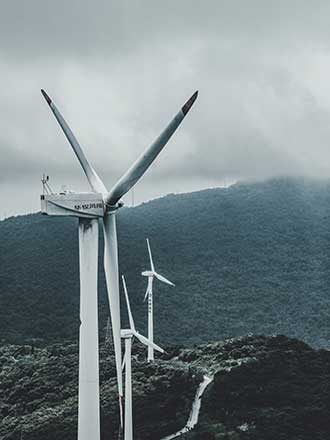EPR for E-Waste in India
ERP Registration for E-Waste Management
One of the most rapidly expanding types of waste is electronic waste. As demand for electronic goods increases, India's production rate of over 50 million tonnes per year is only the beginning. "EPR For E-Waste" was coined to describe discarded or broken electronic devices. Everything from obsolete iPhones to old refrigerators falls under this category.
Mercury, lead, beryllium, brominated flame retardants, cadmium, and many other substances are present in e-waste and pose serious health and environmental risks. When electronics are disposed of improperly, the toxins they contain are released into the environment. E-waste is more harmful than municipal garbage since electronics contain the most dangerous chemicals and metals. The central nervous, urinary, skeletal, endocrine, and reproductive systems are all negatively impacted by prolonged contact with these substances.
Defining and Achieving Efficient Waste Management
To lessen the negative effects of electronic waste on the environment and human health, a process known as "e-waste management" is employed. The need for more education about the dangers of electronic waste to human and environmental health has made its management a pressing problem. More effort must be put into E-waste recycling and better E-management to combat the growing problem of E-waste.
Waste can be reduced by carefully managing the materials utilized in production (Freeman1989). Reducing the number of hazardous elements used in the process and the amount of surplus raw materials in stock will help lessen the amount of trash produced. Material-purchase review and control methods and an inventory management system are two options for accomplishing this.
Producers and Importers Must Register For EPR
The first law, based on Extended Producer Responsibility (EPR), was approved in 2011; it holds producers accountable for the ecologically responsible management of their products' last life cycle stages. Every manufacturer and importer of electricity or electrical equipment must have a certificate or license of EPR for E-Waste in India. As a result, more eco-friendly goods will be produced by businesses. The Ministry of Environment, Forestry, and Climate Change (MoEFCC), Government of India, issues EPR Authorizations.
A Certificate of EPR Registration Has Many Advantages
●By encouraging makers and manufacturers to recycle and reuse e-waste (Electrical and electronics trash), EPR License in Delhi helps keep the price of raw materials down.
● EPR's commitment to eco-friendly waste disposal helps lessen the impact of electronics trash on the natural world.
● The product's and the company's market value increases after receiving EPR Authorization from the Central Pollution Control Board (CPCB).
● Waste production and resource mismanagement are reduced thanks to EPR for E-Waste in India because of its emphasis on long-term sustainability.
How Vasoo Recycle can facilitate your application for an EPR Registration Certificate
Vasoo Recycle has knowledgeable staff to assist you in applying for and receiving your EPR Authorization or EPR Certificate. We are the go-to consultants when assisting clients with EPR License in Delhi in any area of India.
From initial document gathering to final license approval, our EPR consulting team supports anyone seeking EPR Authorization. We maintain close communication with CPCB officials throughout the certification process to ensure accurate paperwork and timely updates. Get in touch with our knowledgeable staff for further details.

